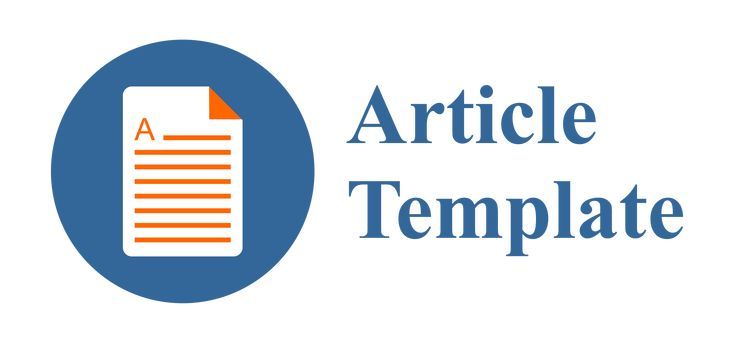Faktor-Faktor yang Mempengaruhi Integrasi TIK dalam Proses Pembelajaran pada Pondok Pesantren di Lombok Timur
DOI:
https://doi.org/10.29408/edumatic.v5i2.4155Keywords:
ICT Integration, Islamic Boarding School, LearningAbstract
The trend of information and communication technology (ICT) in education has become something that is very much needed for the development of education and learning in Indonesia. The integration of ICT in the learning process in Islamic boarding schools is still not optimal. Therefore, this study aims to determine the factors that influence ICT integration in the learning process in Islamic boarding schools in the East Lombok. The method used in this study is a qualitative method using several case studies. The data sources on the research were 32 Islamic Boarding School in east Lombok. While the technique of collecting data used survey, interview, and focus group discussion The results of this study revealed two main themes, barriers and support. Barriers are classified into two groups: teacher factors and institutional support factors (Islamic Boarding school). Teachers include lack of time, lack of qualified human resources and the complexity of ICT integration. At the same time, the factors are limited infrastructure, lack of training, lack of access, and lack of technical support. The use of ICT can increase students' creativity. As for the carrying capacity that they believe ICT use during teaching practice can improve their performance, leadership support is also a key factor determining the integration of ICT during the learning process.
References
Brown, A. H., & Green, T. D. (2015). The essentials of instructional design: Connecting fundamental principles with process and practice. Upper Saddle River, NJ:Routledge.
Christensen, R., & Knezek, G. (2016). Validating the Technology Proficiency Self-Assessment Questionnaire for 21st Century Learning (TPSA C-21). Http://Dx.Doi.Org/10.1080/21532974.2016.1242391, 33(1), 20–31. https://doi.org/10.1080/21532974.2016.1242391
Creswell, J. W. (2014). A Concise Introduction to Mixed Methods Research. SAGE Publications Inc.
Güneş, E., & Bahçivan, E. (2018). A mixed research-based model for pre-service science teachers’ digital literacy. Computers & Education, 118(C), 96–106. https://doi.org/10.1016/J.COMPEDU.2017.11.012
Habibi, A., Mukminin, A., Yaqin, L. N., Parhanuddin, L., Razak, R. A., Nazry, N. N. M., Taridi, M., Karomi, K., & Fathurrijal, F. (2021). Mapping Instructional Barriers during COVID-19 Outbreak: Islamic Education Context. Religions, 12(1), 1–24. https://doi.org/10.3390/REL12010050
Ilyas, M., Bangsa, B., & Zainuddin, G. (2019). Leadership Transformation; Study of Islamic Boarding School (Dayah) In Aceh Province of Indonesia. Journal of Entrepreneurship Education, 22(2), 1–5.
Ilyasin, M. (2020). Transformation of Learning Management: Integrative Study of Islamic Boarding School Curriculum. Dinamika Ilmu, 20(1), 12–22. http://doi.org/10.21093/di.v20i1.2006
Januszewski, A., & Molenda, M. (2013). Educational technology: A definition with commentary. Routledge.
Justus, M. (2017). The Role of Pedagogical Beliefs in Emerging Technology Integration: An Exploratory Case Study of Faculty Perspectives. The Qualitative Report, 22(2), 499–526. https://doi.org/10.46743/2160-3715/2017.2478
Kilinc, E., Tarman, B., & Aydin, H. (2018). Examining Turkish Social Studies Teachers’ Beliefs About Barriers toTechnology Integration. TechTrends, 62(3), 221–223. https://doi.org/10.1007/S11528-018-0280-Y
Lawrence, J. E., & Tar, U. A. (2018). Factors that influence teachers’ adoption and integration of ICT in teaching/learning process. Educational Media International, 55(1), 79–105. https://doi.org/10.1080/09523987.2018.1439712
Lestari, I., & Pratama, M. H. (2020). Pemanfaatan TIK Sebagai Media Pembelajaran dan Sumber Belajar oleh Guru TIK. Edumatic: Jurnal Pendidikan Informatika, 4(2), 95–102.
Lim, C. P., & Pannen, P. (2012). Building the capacity of Indonesian education universities for ICT in pre-service teacher education: A case study of a strategic planning exercise. Australasian Journal of Educational Technology, 28(6), 1061–1067. https://doi.org/10.14742/AJET.811
Miles, M. B., Huberman, A. M., & Saldaña, J. (2018). Qualitative data analysis: A methods sourcebook. Thousand Oaks, CA: SagePublications.
Muhaimin, Habibi, A., Mukminin, A., Pratama, R., Asrial, & Harja, H. (2019). Predicting factors affecting intention to use web 2.0 in learning: Evidence from science education. Journal of Baltic Science Education, 18(4), 595–606. https://doi.org/10.33225/JBSE/19.18.595
Muin, A. (2011). Pemanfaatan Teknologi Informasi di Pesantren. Edukasi, 9(1), 4674–4304. https://doi.org/10.32729/EDUKASI.V9I1.281
OECD. (2015). Education in Indonesia: Rising to the Challenge. OECD Publishing.
Siswanto, S. (2020). The Quality Management of Islamic Boarding School Based on Information Technology in the 4.0 Industry Era. IjtimÄ’iyya: Journal of Muslim Society Research, 5(1), 37–46. https://doi.org/10.24090/IJTIMAIYYA.V5I1.3088
Valtonen, T., Kukkonen, J., Kontkanen, S., Sormunen, K., Dillon, P., & Sointu, E. (2015). The impact of authentic learning experiences with ICT on pre-service teachers’ intentions to use ICT for teaching and learning. Computers & Education, 81, 49–58. https://doi.org/10.1016/J.COMPEDU.2014.09.008
Wekke, I. S., & Hamid, S. (2013). Technology on Language Teaching and Learning: A Research on Indonesian Pesantren. Procedia - Social and Behavioral Sciences, 83, 585–589. https://doi.org/10.1016/J.SBSPRO.2013.06.111
Yin, R. K. (2017). Designing Case Studies. In Case Study Research and Applications: Design and Methods. Sage Publications.
Downloads
Published
How to Cite
Issue
Section
License
All articles in this journal are the sole responsibility of the authors. Edumatic: Jurnal Pendidikan Informatika can be accessed free of charge, in accordance with the Creative Commons license used.

This work is licensed under a Lisensi a Creative Commons Attribution-ShareAlike 4.0 International License.




